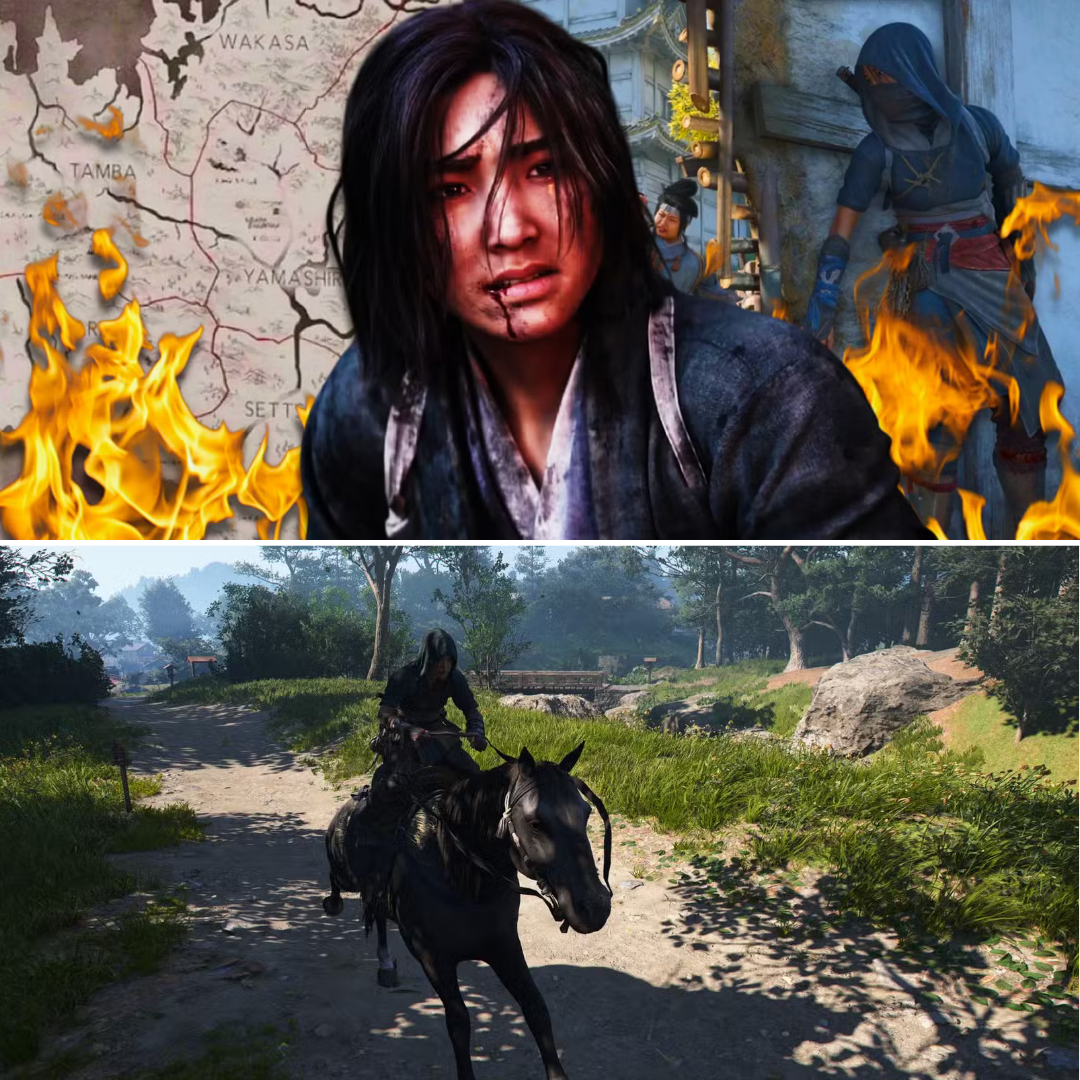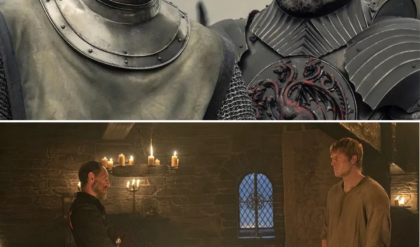AC Shadows’ fixes Ubisoft’s flaws as well as a lot of general issues with open-world titles, such as by implementing dynamic seasons that affect gameplay, meaningful difficulty options, varied side content, and a more linearly designed map that helps push players towards certain goals. It isn’t groundbreaking, but what it gets right, it does extremely well. However, lots of people still hate it, including one aspect of its open-world design that has proved controversial.

Assassin’s Creed: Shadows, released on March 20, 2025, has redefined Ubisoft’s open-world formula with its vibrant Sengoku-era Japan, dual protagonists Naoe and Yasuke, and refined stealth and combat mechanics. Selling over two million copies in its first week and earning an 81 OpenCritic score, the game has been hailed as a return to form, yet one mechanic—level gating—has sparked heated debate. Criticized as restrictive and artificial, it’s often labeled the game’s worst feature, yet its structured approach to exploration offers lessons that could enhance future open-world titles. This article explores why Shadows’ level gating, despite its drawbacks, deserves a place in the genre, drawing from its implementation and community reactions to argue for its broader adoption.
Understanding Level Gating in Shadows
Level gating in Shadows locks certain map areas until players reach specific levels, determined by gear score, skills, and story progress. Unlike Assassin’s Creed: Odyssey’s open-ended exploration, where players could roam freely but face tough enemies, Shadows’ 84-square-kilometer Japan enforces progression barriers. For example, high-level regions like Iga or Omi are inaccessible early, with enemies like elite samurai or shinobi dealing massive damage to underleveled players, as noted in community feedback on Reddit. On Normal difficulty, a level 10 Naoe venturing into a level 20 zone faces near-instant death, discouraging premature exploration. This contrasts with Ghost of Tsushima’s act-based unlocks, which gate areas narratively but allow full access within each act.
The mechanic ties into Shadows’ narrative, which follows Naoe and Yasuke dismantling the Shinbakufu, a shadowy organization. Missions focus on singular targets, and level gating ensures players tackle objectives in a guided order, preventing them from wandering aimlessly across Kansai’s castles and villages. With 40–80 hours of content, including side quests and base-building, the system aims to pace the experience, as highlighted by ScreenRant, which praises its ability to ground players in focused tasks. However, X posts from users like @LibezWolf criticize it as “restrictive,” arguing it stifles the open-world freedom Odyssey championed, making it feel like a step back from the series’ exploratory roots.
Why Level Gating Is Seen as the Worst Mechanic
Level gating’s criticism stems from its departure from open-world ideals. Games like The Legend of Zelda: Breath of the Wild or Skyrim thrive on unrestricted exploration, letting players stumble into danger or rewards organically, as GameRant notes when lamenting repetitive open-world mechanics. In Shadows, entering a high-level area early is possible but punishing, with enemies like ronin having triple the health and damage of low-level bandits, per IGN’s review. This can frustrate players who prioritize freedom, especially those favoring Yasuke’s combat-heavy style, which struggles against overpowered foes without upgraded gear, as Fextralife observes.
The system also clashes with Shadows’ dual-protagonist dynamic. Naoe’s stealth excels in high-level zones, using darkness and prone crawling to bypass guards, but her early-game fragility makes survival tough, as PC Gamer critiques. Yasuke, while tankier, lacks Naoe’s parkour, limiting his navigation in gated areas, per Kotaku. This imbalance, coupled with a non-linear story that encourages exploration, makes level gating feel artificial, as players are funneled into linear progression despite the open-world promise. Bugs, like slow UI after prolonged play, reported by Mashable, exacerbate frustration when players hit gated zones and face technical hiccups.
The Case for Level Gating in Open-World Games
Despite its flaws, level gating offers compelling benefits that address common open-world pitfalls, making it a mechanic worth adopting. First, it prevents player overwhelm, a frequent issue in bloated games like Assassin’s Creed: Valhalla, which fatigued players with endless map markers, as TheGamer notes. Shadows’ smaller, denser world, with seasons affecting flora and NPC behavior, feels alive but manageable, as Fextralife praises. By restricting high-level areas, the game guides players toward meaningful tasks, like infiltrating Osaka Castle as Naoe or battling daimyo as Yasuke, ensuring narrative focus, per ScreenRant. This mirrors Gothic’s effective gating or Metroidvania’s ability-based progression, which reward gradual exploration.
Second, level gating enhances progression satisfaction. Defeating a level 20 samurai after leveling from 10 to 18 feels rewarding, as players return stronger, wielding upgraded katanas or Naoe’s enhanced hidden blade, per Noisy Pixel. This contrasts with Spider-Man 2’s shallow world, where traversal outshines static activities, as PC Gamer laments. Shadows’ system creates aspirational goals, encouraging players to upgrade their hideout for combat perks or gather intel via scouts, a mechanic CBR lauds for engaging players with the environment.
Third, it grounds narrative pacing, vital for Shadows’ loosely structured revenge tale, which risks losing focus without guidance, per ScreenRant. Unlike Ghost of Tsushima’s rigid act locks, Shadows lets players roam within level-appropriate zones, balancing freedom and direction, as TechRadar notes. This could benefit games like Horizon Forbidden West, where sprawling maps dilute focus, by funneling players toward key objectives while preserving exploration, as GameRant critiques open-world bloat.
How Other Games Could Implement Level Gating
Level gating’s potential shines when tailored to a game’s world and story. For fantasy RPGs like The Elder Scrolls VI, gating could tie to magical barriers or faction ranks, unlocking regions as players master spells or alliances, similar to Oblivion’s guild progression but with clearer boundaries. Sci-fi titles like Starfield could use tech-based gates, requiring ship upgrades or hacking skills to access hostile planets, addressing its aimless exploration, per community feedback. Historical open-world games, like a future Assassin’s Creed, could gate areas via political control, unlocking cities as players sway warlords, enhancing Shadows’ intel-gathering mechanic.
To avoid Shadows’ pitfalls, developers should ensure flexibility. Allowing skilled players to bypass gates with high-risk strategies—like Naoe’s stealth in high-level zones—preserves freedom, as Push Square suggests. Dynamic scaling, where enemies adjust slightly to player level, could soften punishment, unlike Oblivion’s rigid scaling, per prior discussions. Integrating gates narratively, like Metroid’s ability unlocks, ensures immersion, avoiding Shadows’ artificial feel, as PC Gamer critiques. Mods, like Clair Obscur’s dodge timing fix, show community demand for accessibility; open-world games could offer toggleable gating options, catering to purists and casuals, per Nexus Mods.
Community and Developer Context
Shadows’ level gating has divided players. X posts from @SmashJT praise its “structured exploration,” but @LibezWolf calls it “hand-holding,” reflecting a split echoed in Reddit threads, where some value pacing and others crave Odyssey’s freedom. Ubisoft’s intent, per ScreenRant, was to refine the bloated formula post-Valhalla, and Patch 1.0.4’s bug fixes, per OpenCritic, stabilize the experience, though gating remains unchanged. The modding community, less active for Shadows than Oblivion or Baldur’s Gate 3, hasn’t yet bypassed gating, but future mods may unlock areas early, per ResetEra speculation.
Larian’s Baldur’s Gate 3 modding success, restoring cut deity dialogue, shows how communities enhance games, but Shadows’ console focus limits such tweaks, as GameRant notes. Ubisoft’s delays, ensuring polish over Star Wars Outlaws’ bugs, paid off, per The Guardian, but level gating’s controversy suggests a need for optional settings in future titles. Compared to Clair Obscur’s mod easing combat, Shadows’ gating feels rigid, but its structured approach could inspire games tackling open-world fatigue.
Challenges and Mitigations
Level gating risks alienating players who value freedom, as Shadows’ 40-hour campaign can feel linear, per CBR. Overly punitive scaling, where low-level players die instantly, needs balancing—perhaps capping enemy strength, as Skyrim mods do. Narrative justification, like war-torn borders in Shadows, must be seamless to avoid immersion breaks, per Rock Paper Shotgun. Technical stability is crucial; Shadows’ UI slowdowns in gated zones, per Mashable, highlight the need for optimization.
Conclusion
Assassin’s Creed: Shadows’ level gating, though divisive, offers a blueprint for open-world games battling bloat and aimlessness. By pacing exploration, enhancing progression, and grounding narratives, it counters the stagnation PC Gamer sees in titles like Hogwarts Legacy. Future games can refine it with flexible scaling, narrative integration, and optional toggles, learning from Shadows’ strengths and missteps. As Ubisoft refines its formula, per Noisy Pixel, level gating could redefine the genre, ensuring worlds like Faerûn or Tamriel feel focused yet free, proving even a “worst” mechanic can spark innovation.





